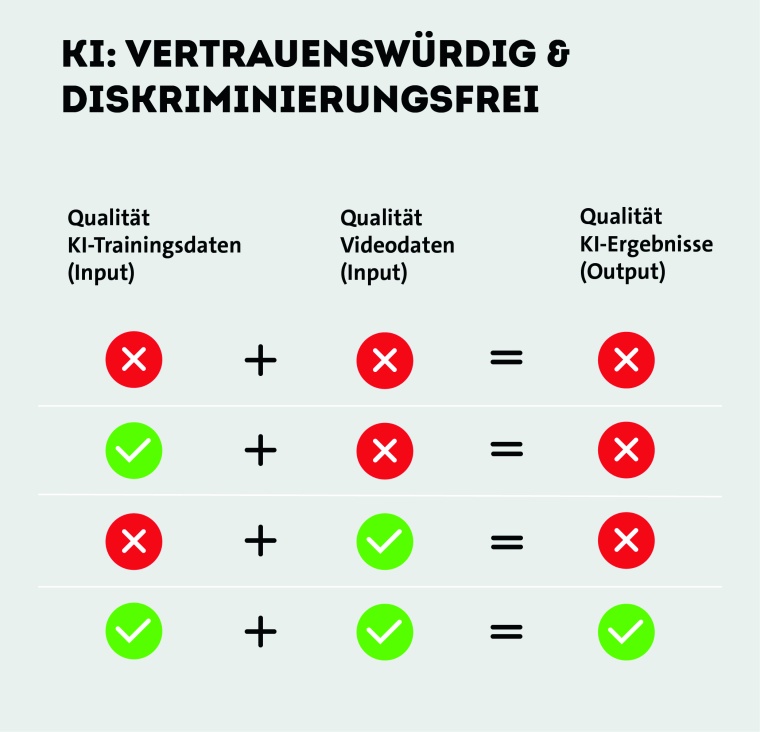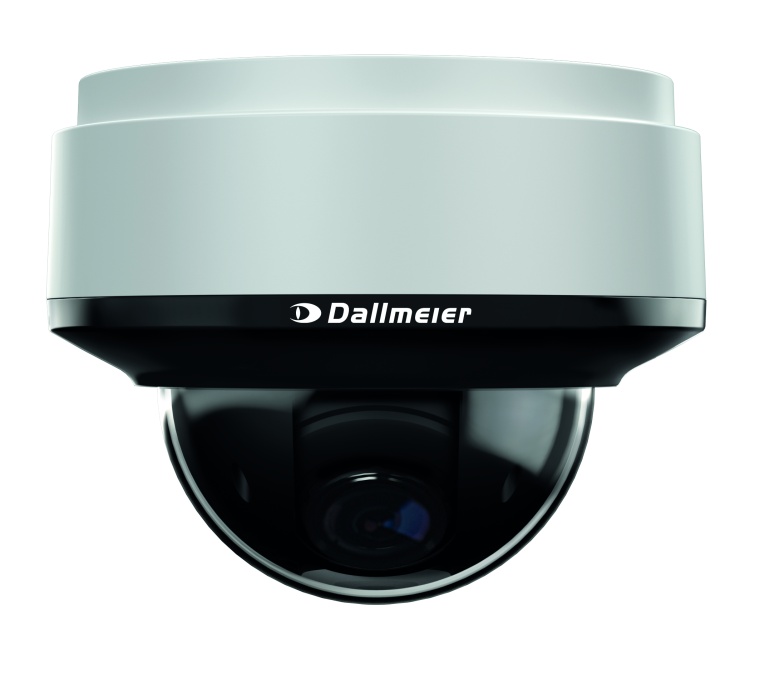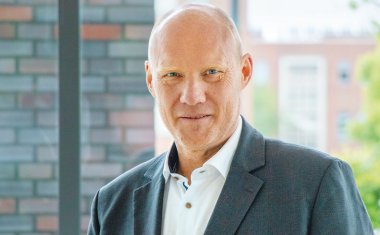Dieter Dallmeier on Data Protection, Ethics, Sustainability
These are the three most important matters that are currently being discussed worldwide – and they also influence the policies of many companies, such as Dallmeier Electronic: data protection, acting ethically, and sustainable and resource-conserving commerce and production. There are many sensitive questions arising from video surveillance technology with respect to the first two meta subjects. Matthias Erler from GIT SECURITY asked the founder and CEO of Dallmeier Electronic, Dieter Dallmeier, about these and other current topics.



GIT SECURITY: Mr. Dallmeier, recent months have shown that the Corona epidemic is not over yet. How have you and your company handled the crisis so far? What financial effects has the pandemic had on your company, and what do you envisage for the future?
Dieter Dallmeier: We had a painful loss of turnover because of the weakness in our important airport, casino and stadium markets, although these have not made a fundamental difference. We saw a significant increase of business in these sectors during the second half of 2021. And in addition – to our relief – we noted that other sectors such as the Safe City or industry developed beyond our expectations. We are looking forward optimistically to 2022 and expect above-average growth just as soon as customers in our main markets can clear their investment blockages.
Before we come to specific projects in 2022: there are a number of wide-reaching matters that are not only occupying the security industry in these times. Dallmeier is also concerned with a trio of partially overlapping subjects –under the headings of data protection, ethics and sustainability. To start with data protection: it all revolves around GDPR ...
Dieter Dallmeier: … correct. The requirements of GDPR as a guideline with the principles of ‘Privacy and Security by Design’ are well known, and equally the potential vulnerability of video systems as IoT systems. The first question that comes up in many conversations with customers is therefore about data protection and data security – and above all the question of the documentation of the capabilities. This is a burning subject that, in our opinion, is gaining relevance daily.
The second subject is ever more often the ‘ethical responsibility’ within our industry. The EU Parliament installed cameras from a Chinese manufacturer in October 2020, whose systems are presumably used as part of the internment of the Uighur in Xinjiang. In response to public pressure and the approval of almost 90 % of the representatives, these were removed again in April 2021. This is just one example to illustrate the matter to your readers: public pressure to behave ethically is growing. Governments are increasingly regulating the markets – the USA for a long time and most recently the UK – as to which systems may be used by the public sector. I expect – and hope – that this also happens for the rest of Europe. And I assume that the sensitivity of the subject will increasingly influence the behavior and purchasing decisions in the private sector, too.
GDPR is a typically European project:
it involves the maintenance of free data movement within the single market – and in a form that requires the protection of individuals whose data is being processed to be taken into consideration. What does this foundation of basic rights mean for a German and European brand? Is it a valuable argument in the worldwide market? Could more be done here?
Dieter Dallmeier: Our western understanding of privacy, political independence and human rights has been established historically with much suffering along the way. Data protection and data security are, so to speak, in our cultural DNA. If you can demonstrate that the entire value chain lies within Germany or Europe, that you as a manufacturer employ external service providers to carry out intensive penetration tests on your products, that you develop and manufacture under a constitutional system where no government would even think of requiring the programing of ‘backdoors’, then that is important for many decision-makers.
I believe that manufacturers and customers as well as ‘politics’ and the regulatory authorities for data protection and cybersecurity should take on more responsibility here in the future, not least for our own markets. We should apply GDPR rules and our cultural DNA to develop products that absolutely lead the way in data protection. Then the supposed bureaucratic hurdles suddenly create the potential for distinguishing features that, just for cultural reasons alone, cannot be so easily copied in a collectivist community.
This includes not choosing the often apparently cheapest solution as a reflex, but instead the one that demonstrates the greatest ethical responsibility. If we absorb this in the short term, everybody profits in the long term: manufacturer, customer and our constitution based on the principles of democracy and liberty.
Data protection stretches into the subject of ‘trustworthy AI’ – a metasubject that is also on the agenda of the European Union: a system that employs artificial intelligence should not only be unproblematic in a normative sense. It should also satisfy fundamental ethical standards – and must not only not cause any technical damage, but also no social damage, for example through nontransparent decision processes or discriminatory AI results. How does a manufacturer of video security technology meet these very high requirements?
Dieter Dallmeier: The combination of video technology and artificial intelligence promises important advantages in efficiency and productivity that will strengthen the competitiveness of European industry and improve the welfare of its citizens. It can also help to find solutions for some of the most pressing social challenges. These include fighting climate change and destruction of the environment, the challenges of sustainability and demographic change, the protection of our democracies and, insofar as is necessary and proportionate, fighting crime – for example within the context of a ‘Safe und Smart City strategy’.
But as a manufacturer we are duty bound to ensure that our products and solutions as well as our company itself are ‘trustworthy’ as a whole, no matter whether it is about data protection and data security, cloud services, sustainability and environmental protection, commercial ethics or even the subject of AI. I view the subject of ‘trust’ as a comprehensive matter – for security technology even more than for other areas. And this particularly affects the use of artificial intelligence: we will only be able to expect the necessary public acceptance in the mid and long term when politics in cooperation with industry develops the right answers and a corresponding moral compass. So this provides a great opportunity for us as a European technology manufacturer.
Let us look a little closer at some examples of what trustworthy AI means in connection with video technology. For example, there are the aspects of classification of objects with the help of studied comparable images or face recognition...?
Dieter Dallmeier: AI is always particularly problematic when it has to do with personal data or person-related data. The subject of face recognition is a good example: there is an ethnic bias in many machines through the skin color. For so long as this problem remains unsolved, there will rightly be a problem with trust and acceptance. And the question always arises as to how the algorithms actually work. The processing of data in an algorithmic ‘black box’ in which it cannot be clearly followed how the data are correlated is not without its problems, and in particular when there is an aspect of self-learning involved. Another matter, aside from the quality of the real data and video data, is the data that are used to ‘teach’ the systems. We use synthetic data here in many applications meanwhile to solve the big problem of ‘data protection-relevant personal attribution of training data’.
You have your own 3D team that does the teaching, and also for planning purposes in a customer environment?
Dieter Dallmeier: Yes, that is right. A good example is the teaching of our systems to look for features – such as the color of clothes. Our 3D team then creates a whole army of artificial 3D figures for our systems to recognize the appropriate pattern. We work in a similar way with our Casino solutions when analyzing piles of chips.
The third subject after data protection and trustworthy AI is one that affects all branches of commercial life, namely sustainability and how it can be achieved. Could you explain what the Dallmeier strategy is here and what contribution you can make?
Dieter Dallmeier: The subject of sustainability and resource conservation has been prevalent at Dallmeier since the beginning. As a manufacturer of security systems we can, of course, only contribute a small amount. But we can see that the quality that can be directly translated into long service and low maintenance effort is important for ever more customers. This is not only about costs – many of our customers want to do their bit under the aspect of ‘corporate responsibility’ to protect our natural resources. I should also mention our own sustainability management system that consists of quality, environment, and workers protection and energy management.
Mr. Dallmeier, let us move on to news about products for this year. What can we expect here?
Dieter Dallmeier: We will definitely be bringing a new camera solution in the category ‘single sensor/dome’ to the market: the Domera camera series will solve quite a few ‘headaches’ caused by classic solutions.
most read


Between War and Peace: Hybrid Attacks and Their Impact on Critical Infrastructure
FOCUS TOPIC GERMANY - Hybrid attacks and drones: Security risks for Germany, its companies and critical infrastructure.

Integrated and Futureproof: Traka’s Next Chapter
Interview with Stefni Oliver on Traka’s Vision for the Future

Airbus Defence and Space: Security as a strategic pillar of Europe's defense capability
Airbus Defence and Space protects sites, technologies and employees with modern security and cyber solutions - strengthening Europe's resilience in uncertain times

Assa Abloy's battery-powered Aperio KL100 secures lockers
Boost workplace security and operational flexibility by securing more than just doors.





